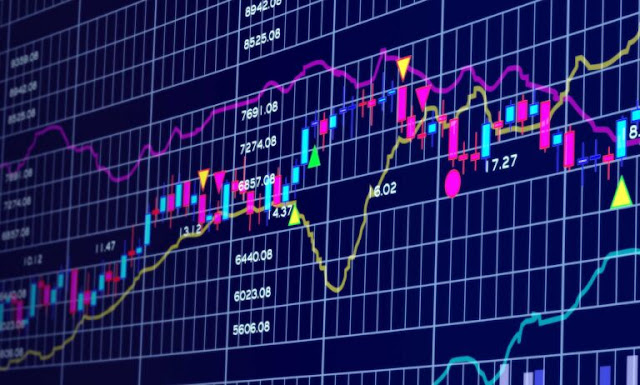The Nigerian equities market ended the trading session on Thursday, August 28, 2025, with a notable decline, shedding 0.49 percent as investors engaged in widespread profit-taking across multiple sectors. This downturn dragged the market’s weekly performance into negative territory, with an overall loss of 0.32 percent for the week. The bearish sentiment was driven by sell-offs in key sectors, including banking, consumer goods, industrial, and oil and gas, although the insurance sector provided a silver lining with modest gains. This article delves into the details of the market’s performance, the factors influencing the decline, and the broader implications for Nigeria’s financial landscape.
Market Performance: A Broad-Based Decline
The Nigerian Exchange Limited (NGX), the primary platform for equities trading in Nigeria, witnessed a challenging session as profit-taking activities dominated market dynamics. The NGX All-Share Index (ASI), a key benchmark for the market’s performance, retreated from 141,248.76 points in the previous session to 140,557.24 points, reflecting the downward pressure exerted by investors cashing in on recent gains. This decline translated into a 0.49 percent drop in the ASI, signaling a cautious approach among investors amid evolving economic conditions.
The market’s aggregate capitalization, which measures the total value of listed companies, also contracted, falling from N89.372 trillion to N88.934 trillion. This reduction of approximately N438 billion underscores the intensity of the selling pressure that characterized Thursday’s trading session. Despite this setback, the market’s year-to-date (YTD) return remained robust at 35.56 percent, reflecting the resilience of Nigerian equities over the longer term, even in the face of periodic volatility.
Sectoral Breakdown: Banking and Consumer Goods Lead Losses
The decline in the Nigerian equities market was broad-based, with four out of five major sectoral indices recording losses. The NGX Banking Index bore the brunt of the sell-off, plummeting by 1.41 percent. This sharp decline in banking stocks, which are among the most liquid and heavily traded on the NGX, highlights the sensitivity of the sector to profit-taking, particularly after a period of sustained rallies. Banks such as Access Holdings, GTCO, and Sterling Financial Holdings Company were among the actively traded stocks, reflecting significant investor activity despite the downward movement.
The Consumer Goods Index also experienced a notable decline, dropping by 0.92 percent. This sector, which includes companies in the food, beverage, and household goods segments, has been under pressure due to macroeconomic challenges such as rising inflation and weakening consumer purchasing power. The Industrial Index, which tracks companies in the manufacturing and construction sectors, fell by 0.45 percent, signaling cautious investor sentiment in capital-intensive industries. Meanwhile, the Oil and Gas Index recorded a marginal decline of 0.02 percent, reflecting relatively muted activity in the energy sector.
In contrast, the Insurance Index emerged as the sole gainer, rising by 0.44 percent. This uptick suggests that investors may be viewing insurance stocks as a defensive play amid uncertainty in other sectors. The resilience of the insurance sector could be attributed to its relatively stable revenue streams and lower exposure to macroeconomic volatility compared to banking or consumer goods.
Top Losers and Market Movers
The bearish session saw several stocks posting significant declines, with Omatek, Ellah Lakes, and Royal Exchange leading the losers’ chart. Omatek, a technology and electronics company, slid by 8.97 percent to close at N1.32 per share, reflecting investor concerns about its near-term growth prospects. Ellah Lakes, an agribusiness firm, fell by 8.49 percent to N13.68, potentially impacted by sector-specific challenges such as rising input costs and logistical constraints. Royal Exchange, an insurance company, lost 6.98 percent, settling at N2 per share, despite the broader insurance sector’s positive performance.
These declines highlight the uneven impact of profit-taking across individual stocks, with some companies facing more intense selling pressure due to specific operational or market-related factors. Other notable losers included stocks in the banking and consumer goods sectors, which aligned with the broader sectoral declines.
Despite the bearish tone, trading activity remained robust, with a total of 885.02 million shares valued at N28.3 billion exchanged in 26,163 deals. This high level of activity underscores the liquidity and vibrancy of the NGX, even during periods of market downturns. Among the most actively traded stocks were Champion Breweries, Access Holdings, GTCO, Sterling Financial Holdings Company, and First Holdco, reflecting strong investor interest in blue-chip and mid-cap stocks.
Factors Driving the Market Decline
Several factors contributed to the Nigerian equities market’s decline on Thursday. Profit-taking, a common phenomenon after periods of sustained market gains, was the primary driver. Over the past year, the NGX has delivered impressive returns, with the YTD performance of 35.56 percent reflecting strong investor confidence in Nigerian equities. However, as stock prices reached elevated levels, investors seized the opportunity to lock in profits, leading to sell-offs across multiple sectors.
Macroeconomic challenges also played a role in shaping investor sentiment. Nigeria’s economy has been grappling with persistent inflation, which stood at 32.15 percent in August 2025, according to the National Bureau of Statistics. This high inflationary environment has eroded consumer purchasing power, particularly impacting consumer goods companies, which rely heavily on domestic demand. Additionally, the naira’s volatility against major currencies has created uncertainty for businesses with foreign exchange exposure, further dampening investor confidence in certain sectors.
The Central Bank of Nigeria’s (CBN) monetary policy stance has also influenced market dynamics. In response to inflationary pressures, the CBN has maintained a tight monetary policy, with the benchmark interest rate at 26.75 percent as of August 2025. While this policy aims to curb inflation, it has increased borrowing costs for businesses, particularly in capital-intensive sectors such as manufacturing and oil and gas. The high interest rate environment may have prompted investors to reassess their exposure to these sectors, contributing to the declines observed in the Industrial and Oil and Gas Indices.
The Insurance Sector: A Bright Spot
The insurance sector’s modest gain of 0.44 percent provided a counterbalance to the broader market decline. Insurance companies, often considered defensive investments, tend to perform relatively well during periods of economic uncertainty. Their business models, which rely on premium income and long-term investment returns, are less sensitive to short-term macroeconomic fluctuations compared to banking or consumer goods firms. The sector’s resilience may also reflect growing investor interest in insurance stocks as a hedge against volatility in other segments of the market.
The positive performance of the Insurance Index could signal a shift in investor preferences toward more stable, income-generating assets. As Nigeria’s financial sector continues to evolve, insurance companies may benefit from increased demand for risk management products, particularly in a volatile economic environment.
Market Context: A Broader Perspective
The Nigerian equities market’s performance on Thursday reflects broader trends in the global and African financial markets. Globally, equity markets have faced headwinds in 2025 due to concerns about economic growth, rising interest rates, and geopolitical tensions. In Africa, markets have been navigating a complex landscape characterized by currency volatility, inflationary pressures, and varying degrees of policy uncertainty.
In Nigeria, the NGX has been a standout performer over the past year, driven by strong corporate earnings, increased foreign investor participation, and a growing appetite for equities as an inflation hedge. The market’s YTD return of 35.56 percent compares favorably to other African exchanges, underscoring Nigeria’s position as a key investment destination on the continent.
However, the market’s recent volatility highlights the challenges of sustaining such gains in an uncertain economic environment. The CBN’s ongoing recapitalization exercise, which requires banks to raise significant capital to meet new regulatory thresholds, has added complexity to the banking sector’s outlook. While initiatives such as rights issues and public offerings have strengthened banks’ balance sheets, they have also contributed to short-term market fluctuations as investors adjust their portfolios.
Implications for Investors and the Economy
The 0.49 percent decline in the NGX ASI and the corresponding drop in market capitalization have implications for both investors and the broader Nigerian economy. For investors, the profit-taking observed on Thursday suggests a cautious approach to risk, particularly in sectors such as banking and consumer goods, which have been key drivers of market performance. However, the high trading volume and number of deals indicate that investor interest in Nigerian equities remains strong, with opportunities for value hunting in undervalued stocks.
For the economy, the performance of the equities market is a barometer of investor confidence and economic health. The decline in market capitalization reflects a temporary reduction in the wealth effect, which could impact consumer and business confidence. However, the market’s robust YTD return suggests that the long-term outlook remains positive, supported by Nigeria’s large and growing population, increasing digitalization, and ongoing reforms in the financial sector.
Looking Ahead: Opportunities and Challenges
As the Nigerian equities market navigates this period of volatility, several factors will shape its near-term trajectory. On the positive side, the continued growth of Nigeria’s digital economy and the expansion of financial inclusion initiatives are expected to drive demand for banking and fintech services, benefiting companies like Access Holdings and Sterling Financial Holdings Company. Additionally, the insurance sector’s resilience could attract more investor interest, particularly as economic uncertainties persist.
However, challenges remain. The CBN’s tight monetary policy, while necessary to combat inflation, could continue to weigh on corporate profitability, particularly in interest-sensitive sectors. Currency volatility and global economic uncertainties, including fluctuations in oil prices, will also influence market sentiment, given Nigeria’s reliance on oil exports.
For investors, the current market environment presents both risks and opportunities. The profit-taking observed on Thursday may create entry points for long-term investors seeking exposure to high-quality stocks at lower valuations. At the same time, careful risk management and diversification will be critical in navigating the market’s volatility.
Conclusion
The Nigerian equities market’s 0.49 percent decline on Thursday, August 28, 2025, reflects a period of consolidation as investors engaged in profit-taking across key sectors. The banking, consumer goods, industrial, and oil and gas sectors bore the brunt of the sell-off, while the insurance sector provided a modest counterbalance. Despite the daily and weekly losses, the market’s year-to-date return of 35.56 percent underscores its underlying strength and attractiveness as an investment destination.
As Nigeria’s financial sector continues to evolve, the NGX remains a critical platform for capital formation and wealth creation. The high trading volume and active participation in stocks such as Champion Breweries, Access Holdings, and GTCO highlight the market’s liquidity and resilience. Looking ahead, investors and market participants will be closely monitoring macroeconomic developments, regulatory changes, and corporate earnings to gauge the market’s direction.
In a broader context, the Nigerian equities market’s performance reflects the dynamic interplay of domestic and global economic forces. While challenges such as inflation and currency volatility persist, the market’s long-term growth prospects remain strong, supported by Nigeria’s demographic advantages, ongoing financial reforms, and increasing digitalization. As investors navigate this complex landscape, strategic positioning and a focus on fundamentals will be key to capitalizing on the opportunities that Nigeria’s vibrant equities market has to offer.






